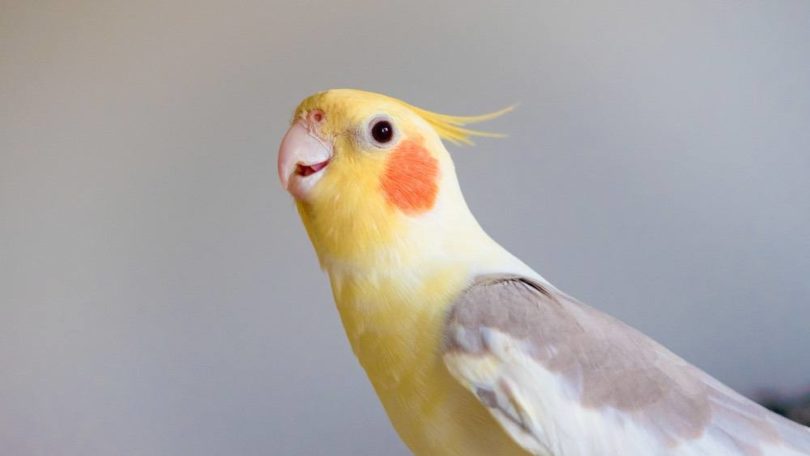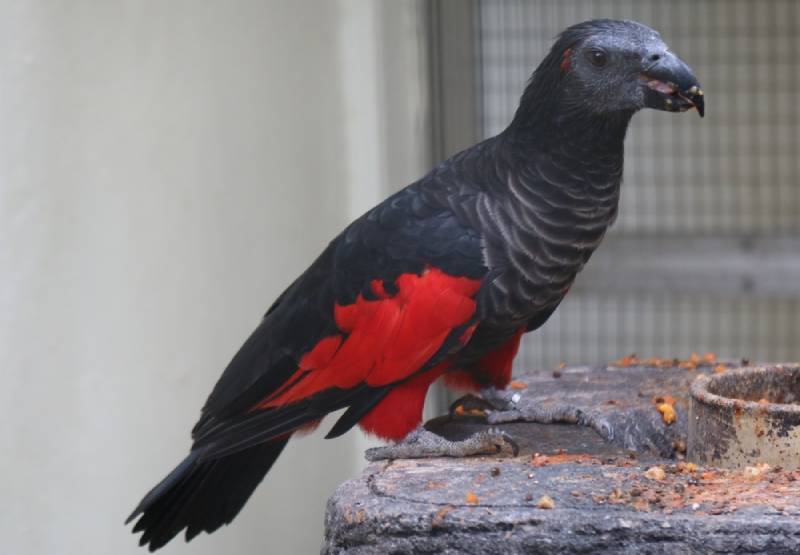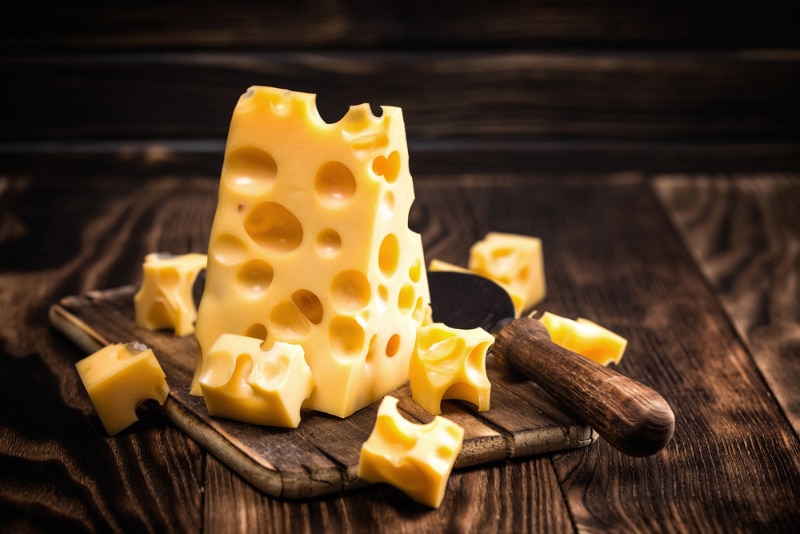Why Is My Parakeet Losing Feathers? 10 Vet-Approved Common Causes
By Ashley Bates
Updated on
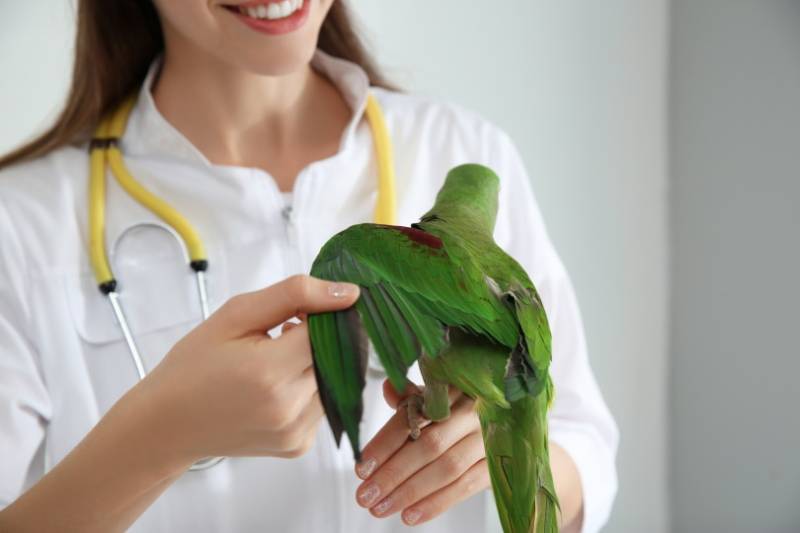
As all bird lovers know, birds lose feathers, similar to the way that we lose and regrow our hair. It is a completely normal part of their lives. However, sometimes, feather loss can seem excessive.
Perhaps you have seen your bird pull out their own feathers. Or, you might notice that they’re losing feathers in patches, which may or may not come without other physical signs. It may be the case that other birds in the aviary are plucking the feathers of one particular bird. So, what exactly is causing your parakeet to lose feathers or pluck them out itself?
Here are 10 common causes of parakeets losing feathers, so you’ll know what is normal and what isn’t, and when to seek treatment.
The 10 Common Causes For Parakeets Losing Feathers
1. Molting
Molting is a very normal and expected behavior in birds that occurs once to twice a year. However, if you’ve never owned a parakeet before, you might be quite unfamiliar with what’s happening. It is simply a natural part of life for birds that all of them go through, so it is nothing that should worry you directly.
However, it is important to give your bird space during this time. Many birds become less active, and less demanding of your attention.
If you feel like your bird is molting irregularly or has abnormal feather growth, consider making an appointment with your exotic animal veterinarian. Sometimes it could be normal for the individual bird, while others may require treatment or diagnosis.
2. Stress and Boredom
Stress can cause a laundry list of health issues in just about any living creature. Your parakeet is no exception. If they are under great stress, it can cause feather loss or feather pulling. You might notice other behavioral changes as well.
- Lack of appetite
- Aggression
- Decreased/increased vocalization
- Behavioral changes
- Self mutilation
- Stereotypical or repetitive behaviors
If your bird is stressed, it is imperative that you rectify the source of stress. Lots of enrichment and interaction with your bird is necessary; they are intelligent animals and require a significant input from their owner to remain content.

3. Infection
If your bird is losing feathers, infection might be the culprit. There are several different infections that your bird can suffer from on their skin. Most of them can be easily controlled with the help of your veterinarian. Infections that cause feather loss are usually viral e.g. psittacine beak and feather disease virus or bacterial e.g. Staphylococcus bacteria.
- Lethargy
- Depression
- Weight loss
- Change/loss of voice
- Breathing difficulties
- Lack or loss of appetite
- Skin discolouration or smell
Infection is a 100% vet-worthy problem. So, if you suspect an infection, don’t delay getting the appropriate treatment.
4. Parasites
If your parakeet is losing feathers, parasites can be the culprit, most commonly Knemidocoptes pilae which cause Scaly face and leg disease. These parasites can wreak havoc on your little bird, so proper control is essential.
- Crusting on the skin of the legs, cere and around the eyes
- Itching
- Decreased weight
- Feather plucking
- Pecking skin
- Increased or decreased vocalization
Often, when birds are diagnosed with parasites, your veterinarian will prescribe an oral or injectable medication to treat the problem.
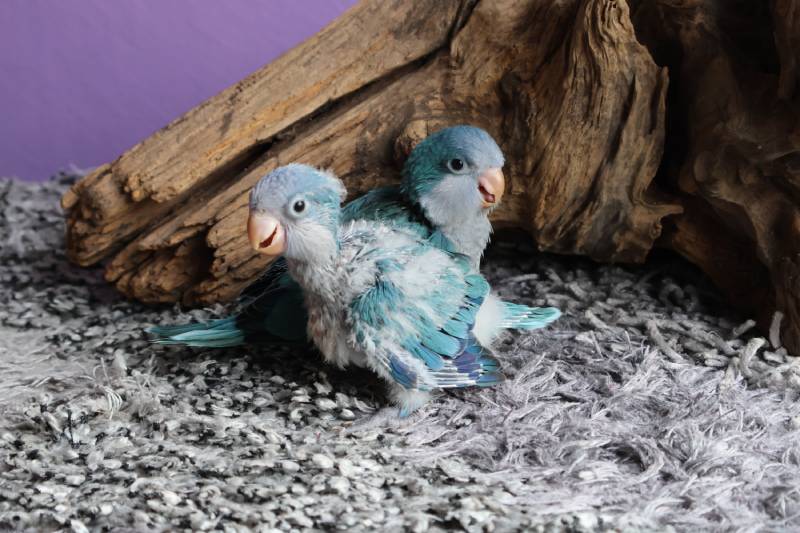
5. Malnutrition
If your parakeet is losing feathers, it could be because of unknown malnutrition. You might be feeding your birds all the time, not realizing that they are not getting the correct nutrients. Whether the food that you purchased lacks a specific nutrient or they have been cherry-picking their meals and leaving out essential ingredients in their diet, it can be a real problem. Stress from malnutrition can lead to feather plucking.
Many parakeets are fed a seed based diet which can be very detrimental. Seed based diets are high in fat which can trigger hormonal problems. They are also deficient in vital minerals like calcium and vitamin A.
6. Allergies
If your parakeet is losing feathers and none of the other options seem to fit, your parakeet might be suffering from allergies. Allergies can manifest in a lot of ways, so pinning down a complete list of signs is often difficult.
- Sneezing
- Wheezing
- Skin irritation
Environmental allergies can be cleared up once the culprit is uncovered, but food allergies might be tricky. The trigger may take a while to find, but you will be able to figure it out eventually with the help of your vet.

7. Insufficient Natural Lighting
Birds require UV light for many vital processes. If you have placed your bird’s cage by a window, you may assume they are getting enough UV light. However, windows will filter out UVB rays that are needed. It is recommended that birds are provided with a UV light that supplies 12% UV-A and 2.4% UV-B. Timers can be used to ensure the light goes on 1 hour after sunrise and turns off 1 hour before sunset, giving approximately 10-12 hours of light per day. Importantly, light must be restricted to a maximum of 12 hours per day because excessive light can disrupt sleep patterns which can lead to hormonal changes connected with reproduction. Frustration surrounding reproduction or the inability to reproduce can cause feather plucking.
- Soft shell eggs
- Egg binding problems
- Lack of calcium
- Feather plucking
- Weakness or ataxia
- Overgrown beaks
- Bone fractures
- Splayed legs
- Potential seizures
8. Sexual Frustration
Your bird may literally be ripping their feathers out because of sexual frustration from seeing you as a mate. If a parakeet is very bonded to a human counterpart, it can cause frustration because the human cannot fulfill the role of a mate. Birds in this situation can feather pluck or self-mutilate.
On the other hand, female birds that become sexually bonded to an owner can become chronic egg layers. It can cause all sorts of issues for females, like uterine prolapse, malnutrition, and egg yolk peritonitis.
It is important to treat your bird like a bird—meaning no feeding from the mouth or stroking their backs or other behaviors that can confuse our birds.
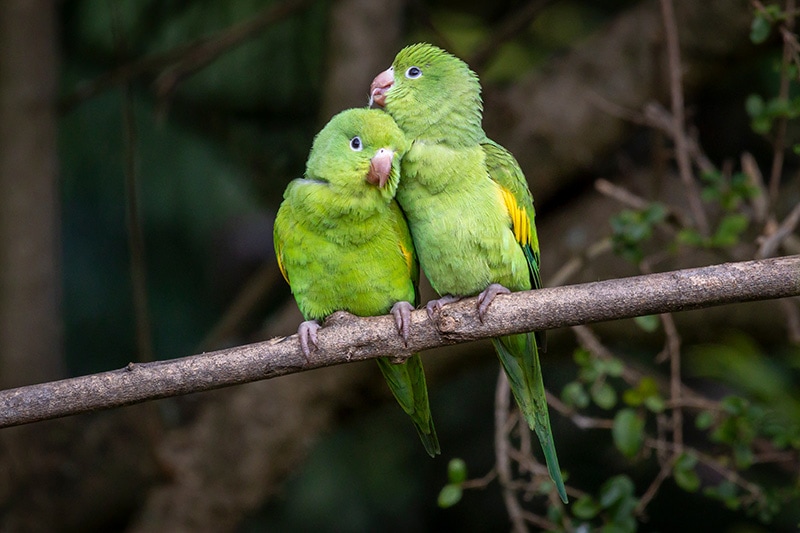
9. Cancer and other diseases
While rare, cancer and other diseases can cause feather loss in parakeets. Your parakeet might be plucking because of the pain or change in sensation. While losing feathers isn’t indicative of any disease specifically, it can be a sign that something is wrong.
- French molt virus: This is a disease mainly affecting younger parakeets that causes abnormal feathering.
- Psittacine beak disease: Psittacine beak is a devastating disease that causes dead, misshapen, or abnormal feathers.
So, your vet may do testing to rule out the possibility that the loss of feathers is due to a disease process.
10. Irritants
Irritants such as ointments applied to the plumage or hand cream from an owner’s hand can irritate a parakeet’s skin, causing them to pluck their feathers out. Incorrectly trimmed flight feathers can also cause irritation with the same effect.

Frequently Asked Questions (FAQ)
What Nutrients Help Feathers Growth?
If your parakeet has suffered from feather loss, certain nutrients can help them regrow their feathers in a timely fashion. Vitamins A, B, and D are vital for feather development.
Can a Parakeet Lose All Their Feathers?
Your parakeet might be losing feathers at such a rapid rate that you worry about them losing all the feathers they have. Certain conditions can cause major feather loss, but they shouldn’t be completely bald.
Because feather loss can signal disease or infection that can cause death if not treated, the underlying cause of feather loss should always be the focus.

What Does It Mean If Your Bird Has Scaly Skin?
If your bird has scaly skin, it often indicates an allergy or infection. Often, bacterial and fungal infections can cause the issue, requiring veterinary attention.
Can Birds Permanently Lose Feathers?
If your parakeet’s feather loss has been excessive, you may wonder if they will permanently lose their feathers or if they’ll eventually regrow. Well, we can’t answer that specifically, as it is a case-by-case scenario, but most feathers will regrow themselves if the condition is treated, provided that there is no permanent damage to the feather follicle.
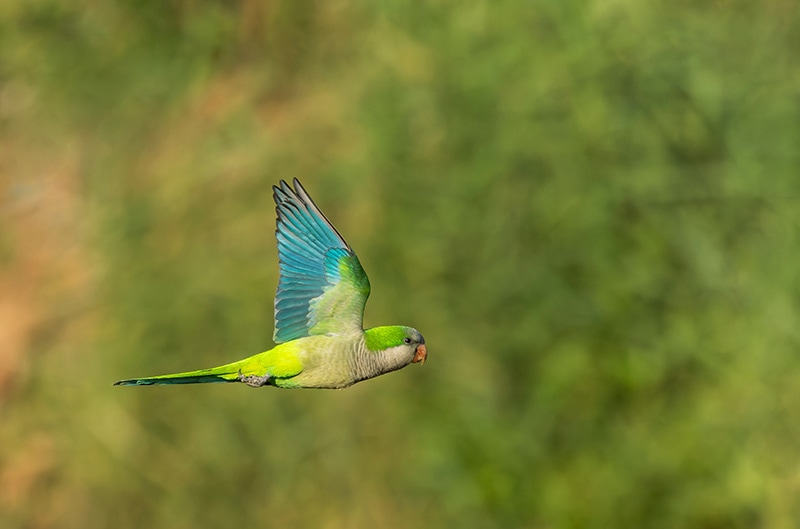
Conclusion
So, now you know why your parakeet might be losing their feathers, but don’t take our word for it. If your parakeet is suffering from feather loss, visiting the vet is imperative. It would be best if you got to the bottom of the issue since the reason can be mild or severe. Be sure to make an appointment so your birdie can have an assessment.
Featured Image Credit: New Africa, Shutterstock



